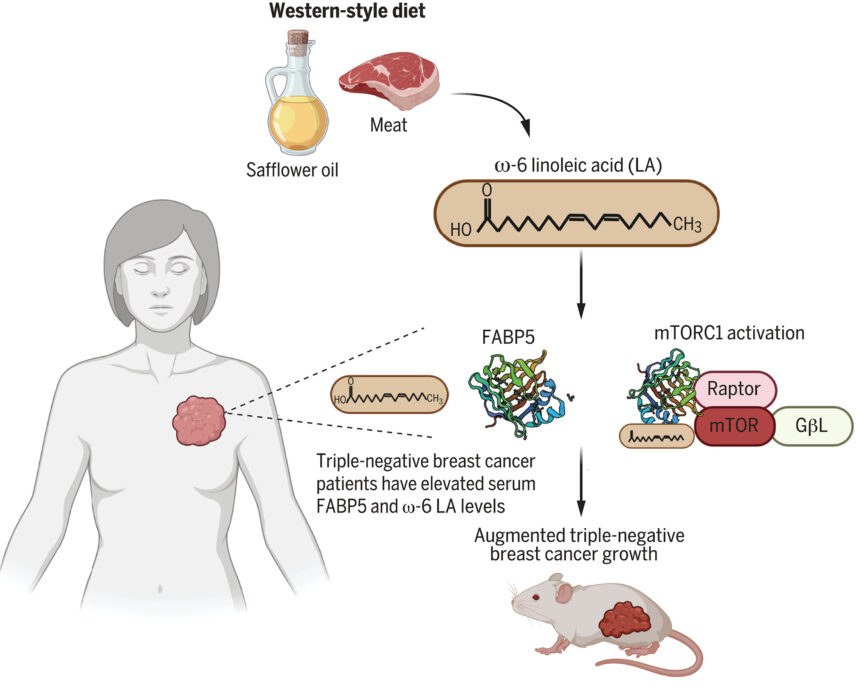A recent preclinical study led by Weill Cornell Medicine researchers has shed light on the connection between linoleic acid, an omega-6 fatty acid found in seed oils and animal products, and the growth of triple-negative breast cancer (TNBC). This aggressive subtype of breast cancer is notoriously difficult to treat, making the discovery significant for potential dietary and pharmaceutical interventions.
Published in the journal Science, the study revealed that linoleic acid can activate a key growth pathway in tumor cells by binding to a protein called FABP5. The researchers found that this activation occurs specifically in triple-negative breast cancer cells, where FABP5 levels are high, but not in other hormone-sensitive subtypes. In experiments with a mouse model of TNBC, a diet rich in linoleic acid was shown to enhance tumor growth.
Dr. John Blenis, the senior author of the study, emphasized the importance of this discovery in understanding the link between dietary fats and cancer. The abundance of omega-6 fatty acids in modern diets, particularly in Western-style diets, has raised concerns about its impact on health. This study provides a biological mechanism that ties omega-6 fatty acids, specifically linoleic acid, to the growth of certain cancers.
The study highlighted the role of FABP5 in the activation of the mTORC1 pathway, a crucial regulator of cell metabolism and cancer cell growth. By forming a complex with linoleic acid, FABP5 promotes the assembly and activation of mTORC1 in triple-negative breast cancer cells. This subtype-specific effect suggests that targeting this pathway could lead to personalized nutritional and therapeutic strategies for patients with TNBC.
The researchers also noted that the omega-6-FABP5-mTORC1 signaling pathway may have implications beyond breast cancer, potentially influencing other cancer types and chronic diseases like obesity and diabetes. By identifying FABP5 as a potential biomarker for guiding treatment strategies, the study opens up new possibilities for targeted therapies in TNBC and other diseases.
Further research is needed to explore the broader implications of omega-6 fatty acids in disease development and progression. The study’s findings provide valuable insights into the role of dietary fats in cancer biology and suggest new avenues for personalized medicine approaches in cancer treatment.








